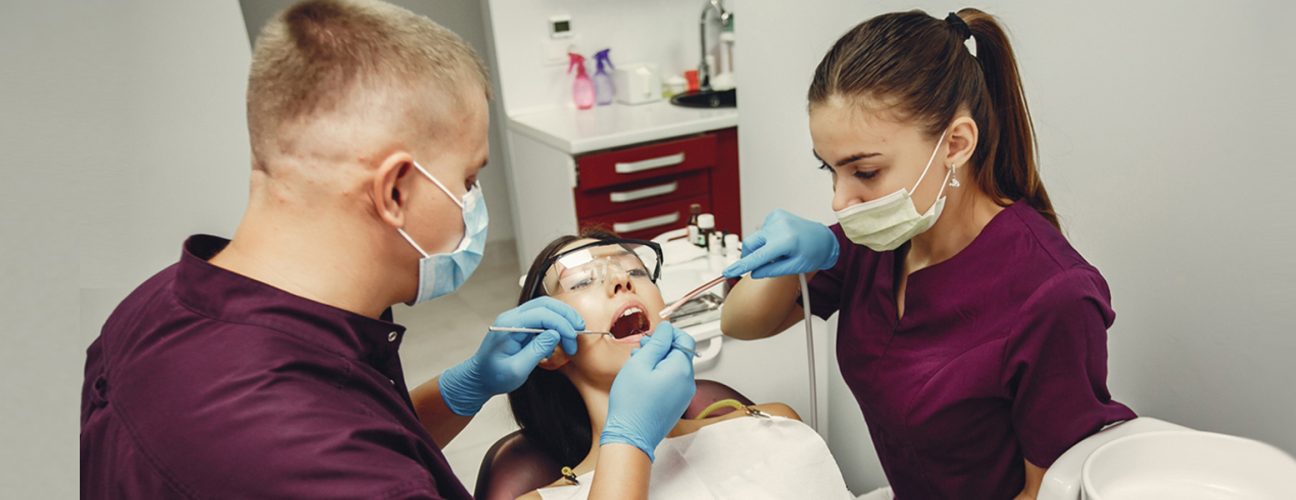Call Today
817-952-8100Pain Free Root Canals
How to Stop Receding Gums from Getting Worse Without Surgery: Non-Invasive Options
August 1, 2025Your gums shouldn’t be shrinking away from your teeth but that’s exactly what gum recession does. The change is slow, often missed until it’s serious. Most people assume surgery is the only fix. The good news? It’s not. Let’s explore how to stop receding gums from getting worse using safe, non-invasive options that help protect your smile starting today.
1. Understanding Gum Recession: Causes and Risk Factors
To stop gum recession, you need to know what’s triggering it. That means looking at both habits and health.
Here are the most common causes:
- Brushing too hard or using any hard-bristled toothbrush
- Plaque buildup from poor oral hygiene
- Gum diseases like gingivitis or periodontitis
- Genetics—some people are just more prone
Lifestyle and health play a role too:
- Smoking dries and weakens the gum tissue
- Hormonal changes (like during pregnancy or menopause)
- Stress, which reduces your body’s ability to fight infection
Spotting the cause early helps you take the right action and avoid further damage.
2. How Professional Cleanings Can Help Reverse the Trend
Let’s be honest—home brushing only gets you so far. Professional dental cleanings go deeper, especially if you’re starting to notice gum issues.
When you go in for dental cleanings in Keller, TX, your hygienist removes hardened plaque and bacteria below the gumline. These bacteria release toxins that weaken gum tissue and cause inflammation. One key treatment is scaling and root planing, a deep cleaning that clears out buildup so the gums can reattach and heal.
Making these cleanings a regular habit—every 6 months, or more if recommended—is one of the most effective non-surgical ways to manage gum recession.
3. Switching Up Your Brushing Technique and Tools
Your toothbrush might be doing more harm than good, especially if it’s hard-bristled or used too forcefully.
Follow these tips to brush smarter:
- Choose a soft-bristled toothbrush to avoid damaging delicate gum tissue
- Use gentle circular motions rather than aggressive back-and-forth scrubbing
- Hold your brush at a 45-degree angle to clean along the gumline
- Try an electric toothbrush having a pressure sensor to prevent overbrushing
These small changes can make a big difference over time.
4. Antibacterial Mouthwashes and Toothpaste for Gum Health
Certain oral care products help calm inflammation and fight harmful bacteria. However, not all toothpaste and mouthwash work the same way.
Look for:
- Chlorhexidine or cetylpyridinium chloride in mouthwash to reduce harmful bacteria
- Stannous fluoride toothpaste for gum and enamel support
Prefer natural options? These help too:
- Tea tree oil mouthwash (diluted)
- Aloe vera gel toothpaste
Using the right products daily supports your gums and makes your whole oral routine more effective.
5. Nutritional Support: Foods and Supplements That Strengthen Gums
You can help your gums from the inside out by eating the right foods and adding a few key supplements. Your gum tissue is made of collagen and other proteins, which rely on proper nutrients to stay strong.
Support gum healing with:
- Vitamin C helps regenerate tissue
- CoQ10 for cellular repair
- Omega-3 fatty acids to reduce inflammation
Add these foods to your diet:
- Leafy greens like kale and spinach
- Dairy for calcium
- Crunchy veggies like carrots and celery—they also naturally clean your teeth
- Drink plenty of water to boost saliva flow and keep your mouth clean
Balanced nutrition helps create a healthier environment for your gums to heal.
6. Lifestyle Changes That Can Make a Big Difference
Your daily habits can quietly wear down your gums—or help them heal. The changes don’t need to be huge to make a real impact.
Here’s what helps:
- Quit smoking—tobacco slows healing and irritates gum tissue
- Get enough sleep to boost your immune system
- Reduce stress through walks, deep breathing, or whatever calms you
Gums heal better when your whole body is in balance. Making better choices every day adds up fast.
7. When to Consider Non-Surgical Periodontal Therapy
If your gum recession is moderate or ongoing, you may need more targeted care. Fortunately, surgery still isn’t your only option. A skilled dentist in Keller will guide you to the best non-surgical plan based on your gum health and risk factors.
Final Thoughts
You don’t need surgery to stop gum recession—just the right care and timely action. With better habits, gentle treatments, and expert help, you can protect your gums and your smile. Ridgepoint Dental Keller offers non-invasive options tailored to your needs. Take charge of your gum health today—your future smile will thank you.

Dr. Kamalpreet Shallu is the dedicated dentist at Ridgepoint Dental Keller, offering advanced dental care with a personal touch. With credentials including a Fellowship in Implant Dentistry, Invisalign certification, and specialized training in guided implant surgery and All-on-X implants, Dr. Shallu focuses on delivering comfortable, high-quality treatment tailored to each patient’s needs. Her commitment to ongoing education and up-to-date dental technology helps families in Keller, TX, enjoy healthier, more confident smiles.
Read More
